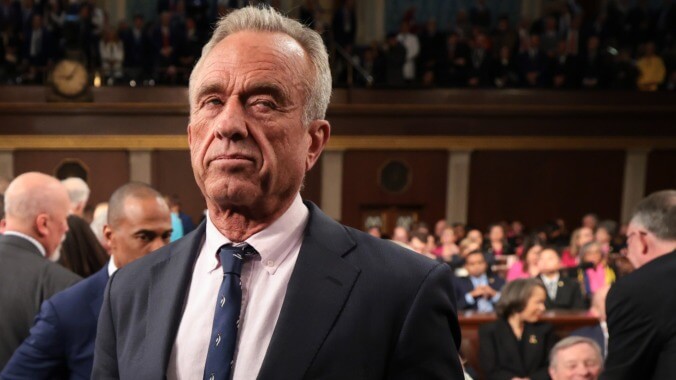This Supreme Court Case Underscored How Much Power RFK Jr. Has Over Our Health Insurance
It sounded like the justices will rule in favor of a key Affordable Care Act provision, while also giving more power to the conspiracy theorist Health Secretary.
Photo: Getty Images Politics
On Monday, the Supreme Court heard arguments in the approximately 1 millionth lawsuit over the Affordable Care Act, specifically a case about the law’s requirement that insurance has to cover certain preventive services with no out-of-pocket costs. While the arguments were focused on specific parts of the Obamacare statute, they also underscored that Health Secretary Robert F. Kennedy Jr. could wreak a lot of havoc on people’s health insurance.
The case is called Kennedy v. Braidwood Management, Inc. and the plaintiffs are Christian business owners who sued the Department of Health and Human Services over the constitutionality of an expert panel that recommends to HHS which health care services should be fully covered without cost-sharing. The plaintiffs, represented by right-wing legal activist Jonathan Mitchell, object to their health plans covering HIV prevention drugs called PrEP on religious grounds and claim the panel doesn’t have legal authority to advise HHS.
Their argument would affect more than PrEP: it could lead to the end of cost-free coverage for many other services recommended by the panel in question, the U.S. Preventive Services Task Force, including lung and colon cancer screenings, statins to prevent heart disease, and medications to prevent breast cancer. (Birth control isn’t immediately implicated; more on that below.) About 150 million people have private insurance that covers preventive services.
If the court sides with the employers, it would mean that these services could once again be subject to copays, deductibles, or coinsurance, added costs which could lead to people delaying care and having worse health outcomes. Some insurance companies wouldn’t change anything because preventive care does save them money, but people would be at their insurer’s mercy.
However, a decision for the Trump administration—which seemed more likely based on the arguments—could mean that Kennedy could not only remove members, but also veto certain recommendations of the task force. As a lawyer representing the American Public Health Association told Stat News ahead of arguments, “This is about giving them the power, to some extent. This is a fight to say, the secretary has the power. If they win, they can uphold the experts’ recommendations or attempt to veto them, which then would likely trigger a court challenge.”
-

-

-

-

-

-

-

-

-

-

-

-

-

-

-

-

-

-

-

-

-

-

-

-

-

-

-

-

-

-

-

-

-

-

-

-

-

-

-

-








































